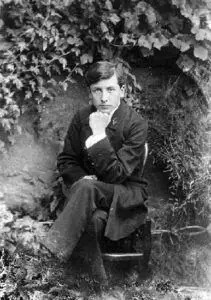Le Grand Meaulnes

One day, Meaulnes goes on an adventurous journey and stumbles upon an estate known as the Domaine de la Sablière. A grand wedding celebration is taking place. He becomes captivated by the festivities and falls in love with a young girl named Yvonne de Galais. However, Meaulnes is unable to find the estate again after he returns to the boarding school.
The novel follows Meaulnes' relentless search for the lost estate and his quest to reunite with Yvonne. Along the way, he encounters various obstacles and undergoes personal growth and self-discovery. The story explores themes of love, longing, adolescence, and the fleeting nature of happiness and innocence.
Le Grand Meaulnes is renowned for its lyrical prose, evocative descriptions, and its portrayal of the complexities of youth and memory. Critics praise the novel for capturing the sense of nostalgia and the yearning for a lost world. Moreover, the novel continues to influence subsequent generations of writers.
About the author of Le Grand Meaulnes

Fournier died at the age of 27 during World War I. He enlisted in the French army in 1914 and served as a lieutenant. Official records have him as MIA in September the same year (during the Battle of the Meuse) 2.